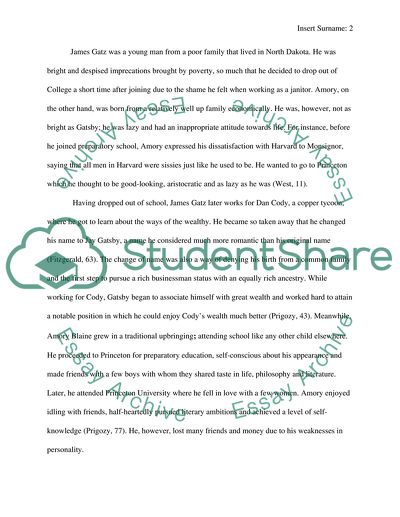Cite this document
(“Comparison of Jay Gatsby in the Great Gatsby and Amory Blaine In This Research Paper - 1”, n.d.)
Retrieved from https://studentshare.org/literature/1585347-comparison-of-jay-gatsby-in-the-great-gatsby-and-amory-blaine-in-this-side-of-paradise
Retrieved from https://studentshare.org/literature/1585347-comparison-of-jay-gatsby-in-the-great-gatsby-and-amory-blaine-in-this-side-of-paradise
(Comparison of Jay Gatsby in the Great Gatsby and Amory Blaine In This Research Paper - 1)
https://studentshare.org/literature/1585347-comparison-of-jay-gatsby-in-the-great-gatsby-and-amory-blaine-in-this-side-of-paradise.
https://studentshare.org/literature/1585347-comparison-of-jay-gatsby-in-the-great-gatsby-and-amory-blaine-in-this-side-of-paradise.
“Comparison of Jay Gatsby in the Great Gatsby and Amory Blaine In This Research Paper - 1”, n.d. https://studentshare.org/literature/1585347-comparison-of-jay-gatsby-in-the-great-gatsby-and-amory-blaine-in-this-side-of-paradise.


